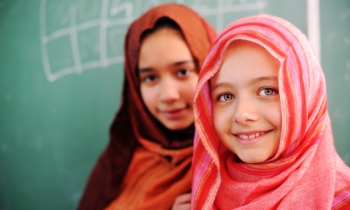Using Communications to Help End Violence Against Women

We’re excited to announce the winners of the fourth annual Avon Communications Awards: Speaking Out About Violence Against Women! The five winners—from countries including Kenya, Australia, and Haiti—were selected by an international panel of judges, and will receive a $5,000 grant to continue their work to prevent and end gender-based violence across the globe.
All of the winners submitted material to our Communications X-Change, a user-generated digital library of communications material aimed at preventing global gender-based violence.
Check out the full list of winners on the Communications X-Change.
Over the past year, I’ve had the opportunity to watch the Communications X-Change flourish—now boasting over 1,300 materials from over 400 organizations based in 86 different countries. Organizations and activists can now find everything from brochures and videos to posters, infographics, and reports to toolkits, radio clips, and mobile apps in several different languages including English, Spanish, Portuguese, French, Khmer, and Ukrainian.
The heart and soul of the Communications X-Change is the ability to share materials, ideas, and lessons learned. These trends have been demonstrated by both the winners and finalists of the Avon Communications Awards. Here are some of the trends and best practices that we’ve noticed over the past year:
Leveraging Art for Social Change.
By using graphic novels to convey their messages, several organizations have made their lessons more accessible to a wider audience, including to those in settings with low literacy levels, youths and adolescents.
- See Cause Vision’s comic books to prevent human trafficking in Nepal, Cambodia and Vietnam
- See Lawyers Without Borders’ comic book from Haiti, “Rape Is a Crime: Report It, Prevent It!”
- See the International Development Law Organization’s comic books on supporting access to justice in Afghanistan
Websites Matter.
If the public cannot easily access and learn about laws, resource materials, and programs to prevent and respond to gender-based violence, there is little hope of creating social norms change. The following three organizations understand this lesson and have created high quality, user friendly and resource rich websites to meet the needs of our modern technology driven society.
- See Prerana’s innovative site, aarambh, to learn more about how they are helping to inform Indian communities about a new Indian law, POCSO (Protection of Children against Sexual Offences Act), and how to protect children from sexual abuse
- See the Association for Progressive Communications’ work on Take Back the Tech! and view its digital safety roadmaps on blackmail, cyberstalking and hate speech
- See the Rhode Island Coalition Against Domestic Violence’s brand new site, which is a robust victim/survivor focused tool that is designed to reach diverse audiences, including the Latino community through a separate Spanish language site
Addressing Accessibility Issues.
The increase in the number of materials and organizations from the Deaf and Disabled communities addressing how domestic violence and sexual assault affects their communities, and the inequalities that they face, speaks to the need to focus our attention on these marginalized communities to ensure that all victims and survivors of gender-based violence have access to the resources they need.
- See how the #WhoWillAnswer campaign is raising awareness about domestic violence and sexual assault affecting the Deaf community and their call for a 24/7 Deaf Hotline that is accessible in ASL to Deaf survivors and is staffed by deaf advocates
- See the DisAbled Women’s Network Canada’s(DAWN-RAFH Canada) resources on and for women with disabilities experiencing violence
- See DeafHope’s PSAs to raise awareness about domestic violence within the deaf community and empower deaf victims and survivors to seek help and support
Engaging Men and Boys.
We will never be able to eliminate violence against women and girls if we do not involve men and boys and change entire communities’ attitudes and beliefs
around gender norms, patriarchy and masculinity. These three organizations, working in three different continents, have made engaging men and boys the focus of their work and or campaigns in order to transform communities’ social norms and prevent violence against women and girls.
- See the Men’s Story Project’s films to learn how they are using storytelling and community dialogue to explore social ideas about masculinities
- See how the Coexist Initiative is working directly with men in Kenya to end violence against women and girls
- See how UN Women Brazil’s “Brave is not Violent” campaign has partnered with soccer teams to engage men and boys and stimulate a change in attitudes and belief







